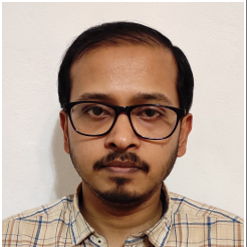Quantum versus classical: Identifying the value of a random variable unambiguously

Description
11 March 2024
Title: Quantum versus classical: Identifying the value of a random variable unambiguously
Speaker: Dr. Saronath Halder, University of Warsaw
Abstract of Talk: Quantum resources may provide advantage over their classical counterparts. Theoretically, in certain tasks, this advantage can be very high. In this work, we construct such a task based on a game, mediated by Referee, and played between Alice and Bob. Referee sends Alice a value of a random variable. At the same time, Referee also sends Bob some partial information regarding that value. Here partial information can be defined in the following way. Bob gets the information of a random set which must contain the value of the variable, that is sent to Alice by the Referee, along with other value(s). Alice is not allowed to know what information is sent to Bob by the Referee. Again, Bob does not know which value of the random variable is sent to Alice. Now, the game can be won if and only if Bob can unambiguously identify the value of the variable, that is sent to Alice, with some nonzero probability, no matter what information Bob receives or which value is sent to Alice. However, to help Bob, Alice sends some limited amount of information to him, based on any strategy which is fixed by Alice and Bob before the game begins. We show that if Alice sends limited amount of classical information, then the game cannot be won while the quantum analogue of the `limited amount of classical information' is sufficient for winning the game. Thus, it establishes quantum advantage. We further analyze several variants of the game and provide certain bounds on the success probabilities. Moreover, we establish connections between trine ensemble, mutually unbiased bases, and the encoding-decoding strategies of those variants. We also discuss the role of quantum coherence in the present context.
Profile of Speaker: Researcher in Quantum Information Theory; Most Recent Affiliation (Post-PhD Research): Centre of New Technologies (CeNT), University of Warsaw, Warsaw, Poland; Post-PhD Research in India: Harish-Chandra Research Institute (HRI), Indian Institute of Science Education and Research (IISER) Berhampur, Institute of Mathematical Sciences (IMSc); PhD: University of Calcutta and Bose Institute, Kolkata, India
Add Event to My Calendar
Subscribe to the OIST Calendar
See OIST events in your calendar app





